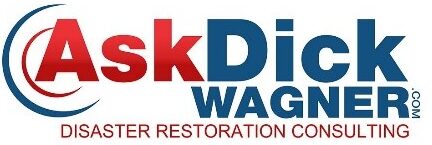 According to Webster’s Dictionary – a metaphor is a figure of speech, often like an analogy – using a word or phrase to suggest a similarity or likeness. Example: “He’s drowning in paperwork,” or “she broke my heart.”
According to Webster’s Dictionary – a metaphor is a figure of speech, often like an analogy – using a word or phrase to suggest a similarity or likeness. Example: “He’s drowning in paperwork,” or “she broke my heart.”
You hear metaphors every day, and most of us use them every day, but don’t realize it. “He bent over backward,” “Stop and smell the roses,” “You are my sunshine,” and yes even “That’s like comparing Apples to Oranges!”
If you really think about it, words have meanings and specific words have very specific meanings – but are sometimes interchanged, and often inappropriately. For example in discussing how fast two vehicles were traveling when they: Bumped, Contacted, Collided, or Smashed, each word implies a different speed of travel.

The better we get at using the most accurate word for the situation, the better we communicate, and the more likely people will listen to us. In sales, there are many reasons to make use of metaphors, the biggest is to connect better with the clients, thus increasing the likelihood that you will make a sale.
People often ask us questions like:
- Who are you?
- What do you do?
- How long will this take?
- How much will this cost?
How we choose to answer questions like these is directly proportional to how well they understand, and even how much they trust you! Remember the old adage “people buy from people they trust!”
I regularly remind marketers that they must do their homework and learn about their clients, their business, and even their industry. This way you can talk their language, adding to your credibility. Knowing your prospect on a personal level where possible includes:
- What are their hobbies?
- Where did they go to college?
- What kind of car do they drive?
- How long have they been with the company?
Knowing your prospect’s pains, business issues and even industry concerns includes:
- What daily headaches do they have?
- What is their specific industry language or terminology?
- Using their acronyms and jargon.
- Understanding their specific industry
We all use metaphors every day, and topics such as cars, weather, politics, and sports are great bridges to incorporating metaphors into your presentations. If you are in the electrical industry, you might be asked: “How are you different from your competitor?” My favorite answer is “we are to contractors what Nike is to sports!”
The classic response is when a customer asks; “when will it be finished?” – and we respond with some platitude like, “it’s done when it’s done!” What a terrible and disrespectful way to answer your customer! Using a metaphor is so much softer, and more respectful and helps them understand at a whole new level. Try saying “It’s difficult to give you an exact length of time, because, just like those having major surgery, one may recover quicker than another. It really depends on so many factors!”
Another compelling reason to learn and use metaphors is that often your client (and you too) have biases or “blind spots” that hinder their ability to see the advantages of your product, service, or even you! If you really know your prospect, you are in a far better position to overcome their bias or blind spot.
 Author: Dick Wagner, AskDickWagner.com
Author: Dick Wagner, AskDickWagner.comNationally recognized restoration sales coach, speaker, and consultant
